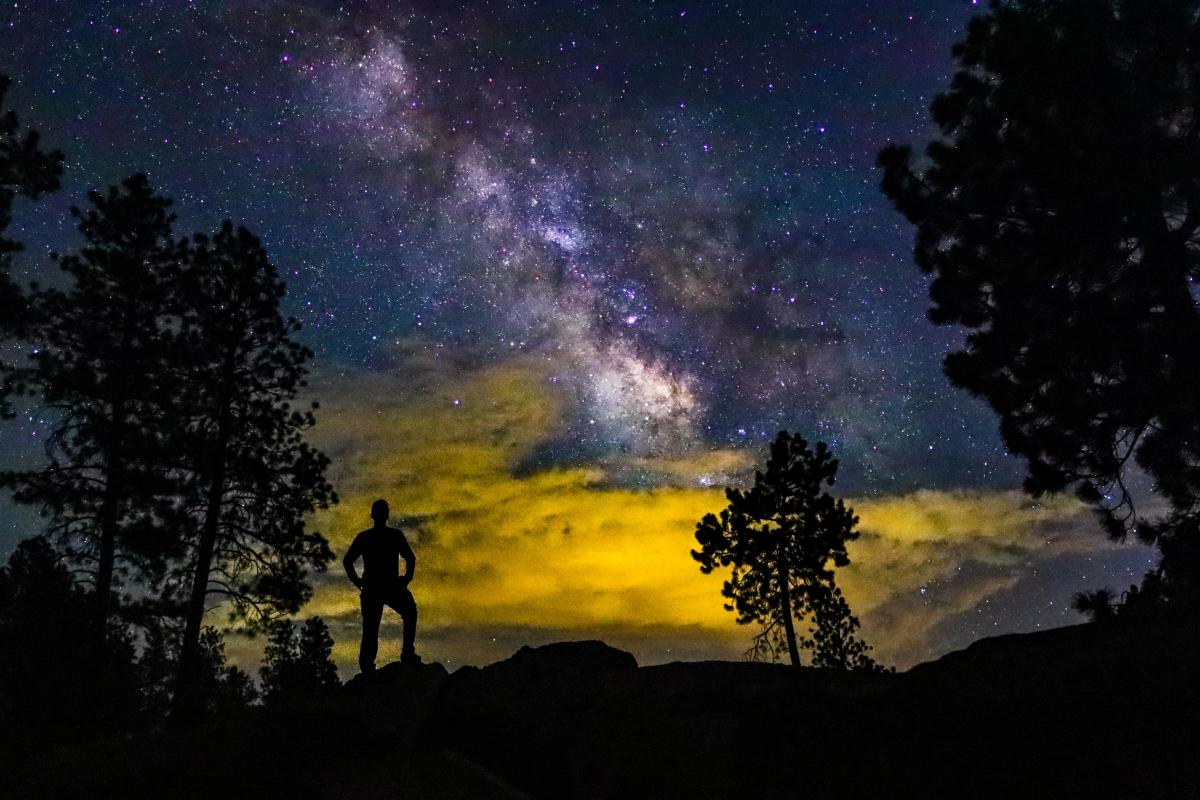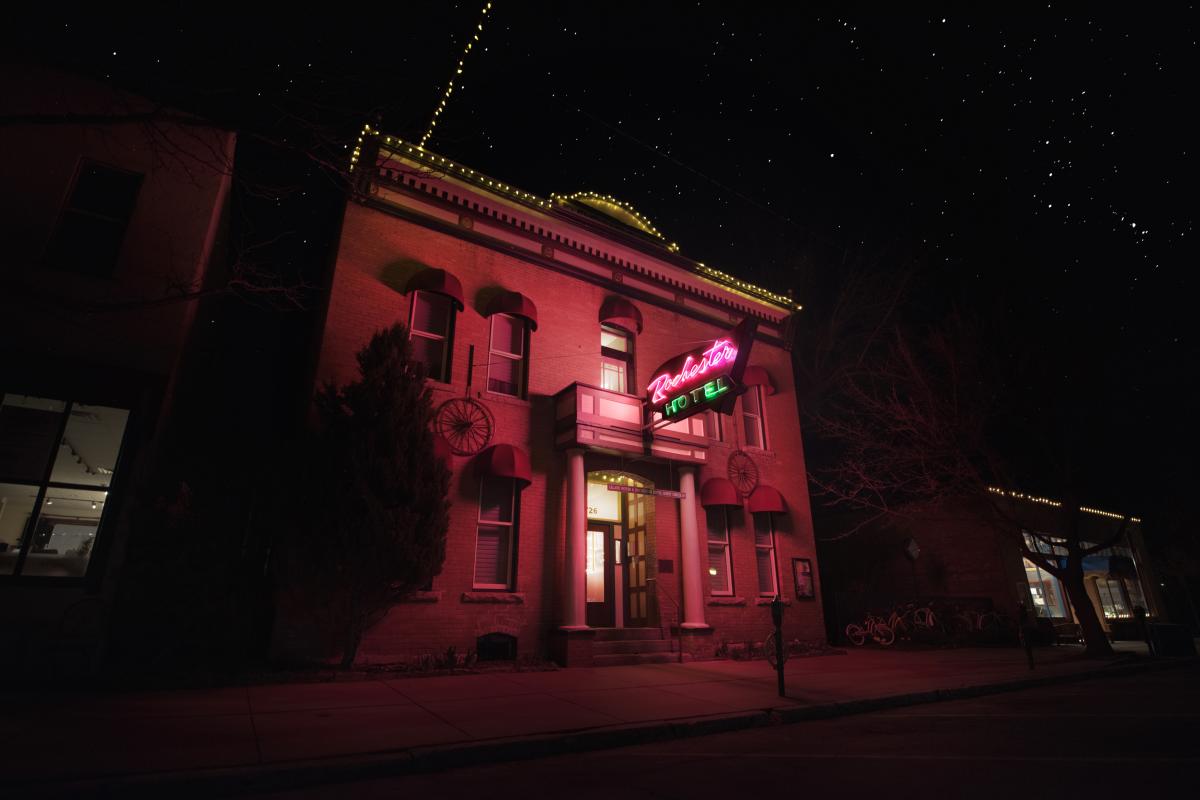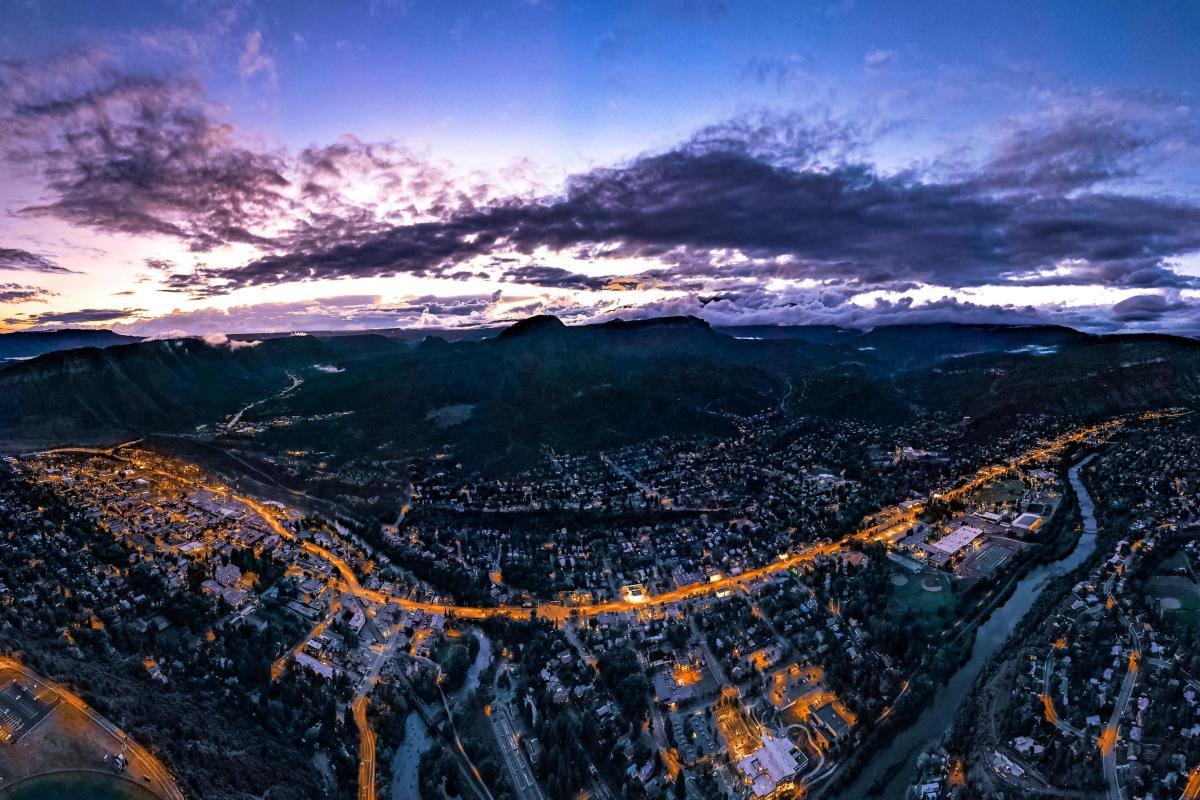People who visit Durango on a regular basis or are long-time locals absolutely love Durango's night sky. On most clear nights, we are blessed with the incredible twinkling celestial bodies and the ever-reaching arm of the Milky Way above.
As the Durango cityscape builds up around and more visitors frequent our community, our lovely night sky can start to feel the effects of this. Bright hotel room lights, car lights, and home lights all have an effect on the aesthetic beauty of Durango's night sky.
While reducing light pollution might seem a daunting task, and best left to the local power companies, there are actional things you can do right now to help reduce local light pollution.

Here are 10 simple ways to reduce your light pollution in Durango:
#1 Turn Off Lights When Not in Use
Many of us are already pre-conditioned to do this when our parents gave us a light scolding growing up when leaving the room without turning off the lights. But if you have slowly grown out of the habit, now’s a great time to restart it. Not only does turning off lights help contribute to lessening overall light pollution, it reduces your energy costs at home.
#2 Use Fewer Lights When Inside
Building on the above, it’s just good practice to only use light that you absolutely need. If you appreciate low, ambient lighting, you’re already off to a great start. Having dimmers installed in every room also allows for using less light overall.
#3 Keep the Blinds and Drapes Closed at Night
After the sun sets, try to get in the habit of using window shades to keep room lights from escaping your house or hotel room, as it contributes to the light pollution outdoors. This also allows for your own privacy, especially in close quarters such as in hotel or apartment buildings.

#4 Avoid Driving at Night
For many folks, driving at night is like driving in an entirely different world, and some of us have a lack of depth perception, to boot. So unless it’s necessary, avoid driving at night; not only is it safer, using headlights contributes to the degradation of our gorgeous night skies.
#5 Turn Off All Lights When Going to Sleep
This goes without saying, but when you’re asleep you don’t need lights! Small night lights to illuminate your way during that midnight bathroom brake are okay, as well as motion sensor lights for safety.
#6 When Going Outside, Point Your Lights Towards the Ground
When using flashlights or headlights outside to illuminate your way, always try to point them down to the ground. Believe it or not, pointing that tiny ray of light upwards does contribute to light pollution! This is also good practice if you do any night hiking, whether in the city or in rural areas.
#7 Use Night Shift Settings on All Devices
Nowadays, with all of our devices such as home computers, laptops, IPads, phones, etc. it has the potential to contribute just as much (or more) to light pollution than regular room lights. Especially when everyone in the family is using them. After dark, the bright lights of our screens are not needed, so switch to a dimmer night setting. It’s also good for our eyes.
#8 Let Your Eyes Adjust to Less Light Instead of Turning on Lights
Sometimes we are used to absentmindedly turning on the lights full blast after the sun sets. But it’s kind of amazing to know that our eyes can adjust rather nicely to no-light or low-light settings if we just give it a few minutes. Don’t believe us? Try it!
#9 Unplug from Devices as the Sun Sets
Going a step further from point number seven, reducing the use of our devices in the evening is always a great habit to form. We’ve all heard of the potential dangers of too much screen time. After dinner, make it a rule to unplug completely. After a few days, you’ll find that it’s pretty easy.

#10 Use Only Downward Facing Lights Inside When You Can
When light points upward it contributes directly to the artificial sky glow – that glow you see over urban areas from a cumulative array of lights. This sky glow spills over into neighboring areas and can also disrupt wildlife. Install light shields for any outdoor lighting set-ups to help direct the light downward to a specific area.
Conclusion
Natural darkness should be the default at night – artificial light should be used only for a specific purpose. Remembering that indoor lighting also contributes to light pollution outside, and keeping the above points in mind ensures a cleaner and more beautiful night sky in Durango for all to enjoy.




